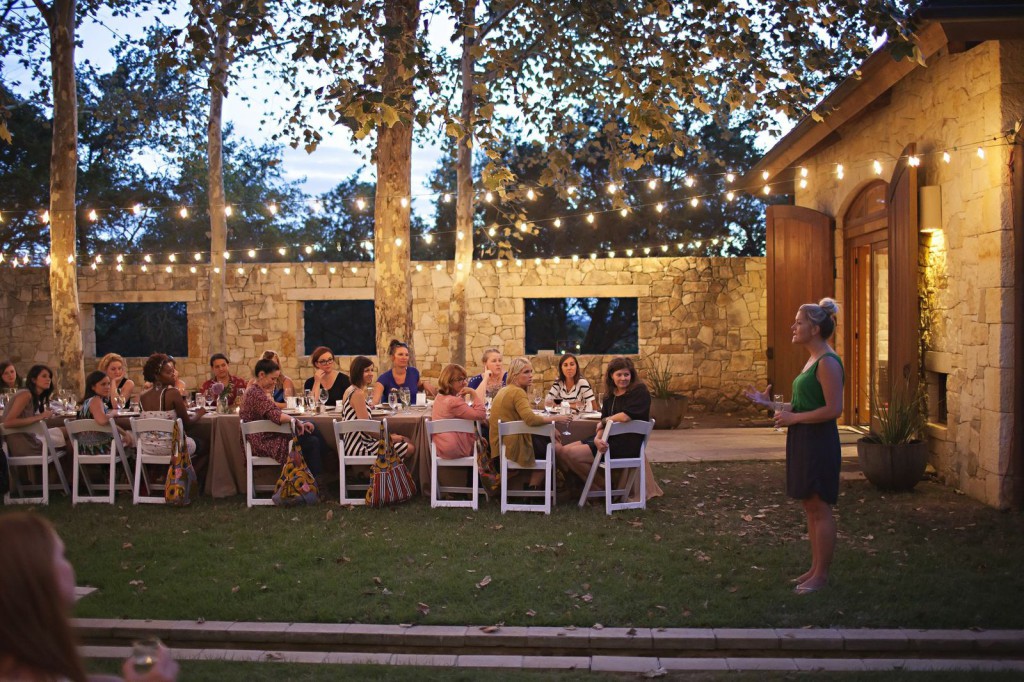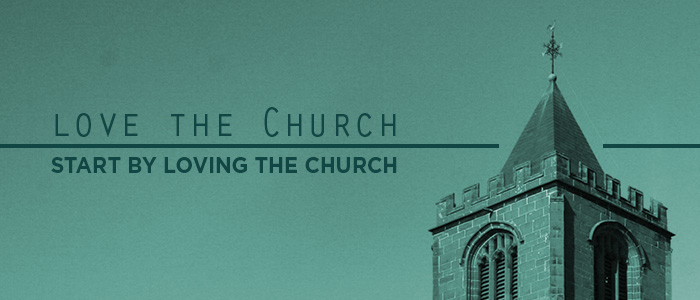A few weeks ago I left work and drove to Austin with a small luggage bag and not a lot of expectations. I didn't feel nervous, excited, scared, or expectant. I felt, I'll be honest, suspect. I knew Jennie Allen had asked the lot of us there to talk Church and I'm a Church girl, so that was enough for me. But what was IF?
Turns out I wasn't the only one on top of that west Austin hilltop asking the question.
I also wasn't the only one who left three days later still asking that question.
And that is exactly why I'm on board with IF: Gathering.

Because there was a tremble in Jennie's voice on that first day and on the last day and on the phone the other day. It's a tremble that I don't hear in the Church very often. And it's a tremble that draws me in. It sounds like faith and expectation and unknowns and it sounds like the Holy Spirit.
This is why I think IF: Gathering is worth every penny. But I'll get to that in a minute.
Church, we are fat on the feast that is knowledge, puffed up with pride and principles, gluttons for information and checklists. We want to see the Father or we want to be Jesus-only-Red-Letter Christians, but the Holy Spirit is there wanting, longing, waiting to teach us all things (John 14:26).
What Jennie and the team are doing is not only different from any conference I've seen, they are also doing something that requires buckets and waves of faith. The sort of faith that presses them into the Rock. Peter asked Christ,"To Whom else would we go? You have the words of eternal life." And the team at IF is saying just that.
What else could they do?

So the preliminary IF: Gathering was worth every penny to me. And if it cost you a penny, it would be worth it to you. But in an expression of faith and an expectation of the same Holy Spirit who fell heavy on our three days in Austin, the leadership team at IF has decided to open the February gathering at no cost to you.
Not no cost, not exactly. Because as Bonhoffer said, "When Christ calls a man, He bids him come and die. It may be a death like that of the first disciples who had to leave home and work to follow Him, or it may be a death like Luther’s, who had to leave the monastery and go out into the world. But it is the same death every time—death in Jesus Christ, the death of the old man at his call.”
The cost of being a part of IF: Gathering is the same as the cost of being a part of your local church and the global church. It is to come and die. Die to your own expectations and designs, dreams of platform growth or opportunistic voyeurism. It is to die to self and to love the Church in a way that is sacrificial and eye-opening. To see the Church in all her glory and in all her brokenness.

There are two ways you can participate in IF: Gathering. The first is to attend the central gathering in Austin, Texas along with 1200 other women who desperately love the Church and the table at which we all sit. UPDATE: Registration closed.
The second way, and I hope so many of you will take this route, is to hold a gathering in your own town. Invite women from other churches and faith-backgrounds. Sit at the table. Worship the same Jesus. Commune with one another. The ground before the cross is the most beautifully level ground in the world. Bring that level ground home in a tangible way. There is something so powerful about women opening their homes and lives to one another, reaching across their own tables, over food they have made with their own hands, surrounded by the stuff of their own lives—this is the beautifully messy bride of Christ.
One of my favorite moments at the initial gathering last month was when 50 women from every corner of the Church came to the middle of the room and didn't see eye to eye, but saw the cross, the beautiful, wonderful cross.
What is IF: Gathering?
Peter asked Jesus, "Show us the Father and it is enough for us." And Jesus replied, "No, I'll ask the Father and He will give you another Helper to be with you...He will teach you all things and bring to your remembrance all that I have said to you."
IF is nothing. I promise. Jennie would say the same thing to you. It is nothing but a room where the Holy Spirit is welcome to do what He will.
If you'd like to register for IF, whether in Austin, TX or in a local gathering near you, register here. And consider contributing to the financial cost of holding the gatherings. The team isn't asking for a registration fee, but it costs a pretty penny to help things like this run smoothly and in a way that serves as many as possible. Pure Charity is handling that, so consider giving if you can. (They're a trusted organization, promise!)
UPDATE: IF: Austin sold out in less than an hour. But you know what? IF: Local has the potential to be deeply impacting in beautifully different ways. I hope you'll consider it a blessing to be a part of a Local gathering. Open registration begins tomorrow.










